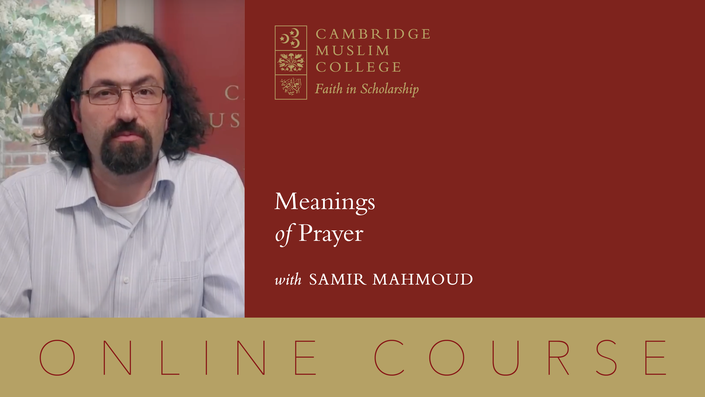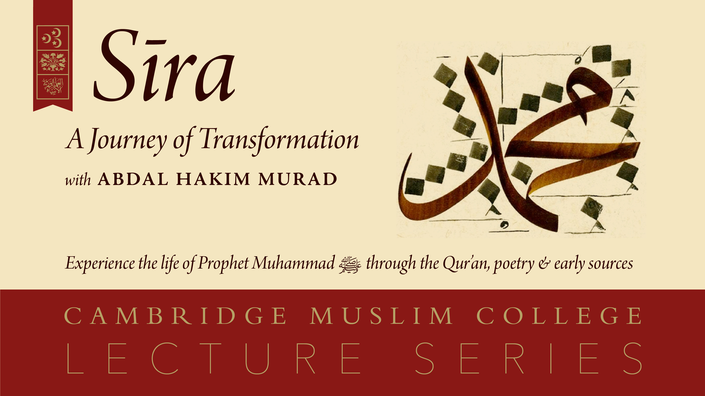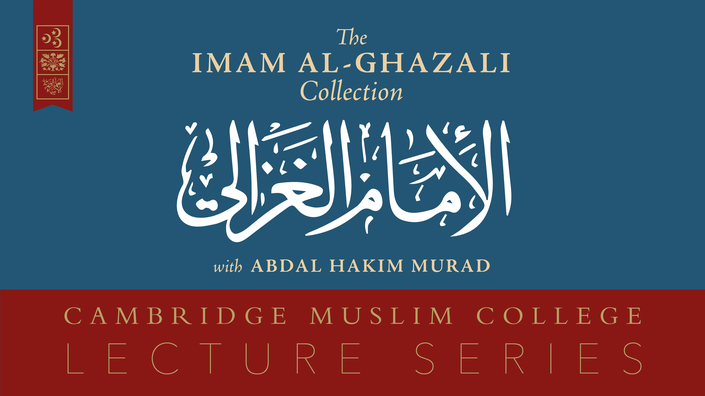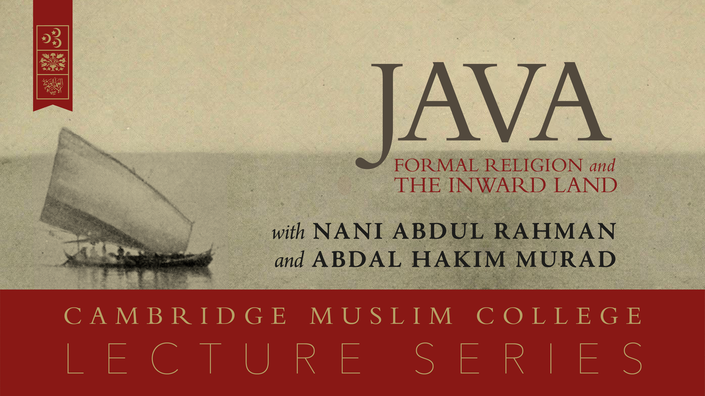
Meanings of Prayer
An introduction to the various aspects and mysteries of the ritual prayer (salat) and how they relate to contemporary life.
Learn MoreCambridge Muslim College now offers a new Online Learning Platform providing exclusive access to Lecture Series and Courses that you can take at your own pace and in your own space.
What does it mean to be "present" during prayer? What is the significance of the various body movements in salah? What is the fundamental nature of witnessing God when we worship? This course with Dr Samir Mahmoud covers the various aspects and mysteries of the ritual prayer and how they relate to our contemporary lives.
Structured as a series of eight sessions, the course looks at key concepts including presence and the heart and explores their centrality in the ritual prayer.
Throughout the eight sessions, we will cover:
- The meaning of salat and the prayers of humans as well as the prayers of angels and creatures.
- The significance of intentions and the importance of purification of the body as well as the heart.
- The ritual prayer is understood through its movements, the role of the body and its parts, as well as the inner significance of these movements.
- The importance of the recitation of the Divine word
- The fundamental nature of witnessing God and the crucial role of imagination in prayer.
Following the sessions, there are eight thematic meditations and reflections on the implications of prayer for our day-to-day lives. These cover topics ranging from creativity, art and imagination as well as our relationship to nature, time and much more.
There are no prerequisites for this course. It is suitable for people of all backgrounds with a general familiarity with Islam. Registered users will be invited to an annual online workshop in which they can pose course related questions to the instructor.
Your Instructor

Dr. Samir Mahmoud is currently Assistant Professor at the Lebanese American University. He has a BA (Hons) in Anthropology & Politics with a focus on multicultural theory and comparative religion, and an MA in Architectural History, Theory & Urban Design with a focus on the traditional townscape from the University of New South Wales, Sydney Australia. He also holds an MPhil in Theology & Religious Studies with a focus on comparative philosophy and aesthetics. He completed a PhD in Islamic Studies from the University of Cambridge under the supervision of Dr. Timothy Winter (Shaykh Abdal Hakim Murad).
Dr. Mahmoud is a former Andrew Mellon Postdoctoral Fellow (2013-14) in the Arts & Humanities Initiative at the American University of Beirut and a Postdoctoral Research Associate (2012-2013) at the University of Oxford.
Curriculum
-
PreviewSession 1: Presence of the Heart (14:28)
-
StartSession 2: The Meaning of Salat (23:37)
-
StartSession 3: The Mysterious Nature of Time (26:03)
-
StartSession 4: The Significance of Purification & Water (18:40)
-
StartSession 5: Intentions & Being Mindful (28:27)
-
StartSession 6: The Mystery of Facing the Qibla & the Meaning of the Movements (34:13)
-
StartSession 7: The Divine Word, Reciting & Listening to the Qur'an (26:34)
-
StartSession 8: The Nature of Imagination & the Possibility of Vision in Salat (22:13)
-
StartConclusion (1:16)
-
PreviewReflection 1: Universality of Islam (2:28)
-
StartReflection 2: Inclusive of all Forms & Gestures (2:11)
-
StartReflection 3: Imagination is Balance between Tanzih & Tashbih (4:55)
-
StartReflection 4: Protection Against Illusion, Guarantee of Reality (3:41)
-
StartReflection 5: Rhythms of Nature (5:13)
-
StartReflection 6: Time & Times (4:49)
-
StartReflection 7: The Self, the Breath & Postures (4:16)
-
StartReflection 8: Compassion (3:35)
-
StartImpetus for the Course (4:43)
-
StartHow does one remain present and improve concentration in salat? (10:26)
-
StartCan you pray on the earth even if you're unsure of its cleanliness? (0:41)
-
StartWhat is the balance between khushu' and awareness? (4:22)
-
StartWhat is the meaning of the verse 'God prays upon you' (Q 33:43)? (1:34)
-
StartCan you expand on the concept of the waterfall of Allah's names? (5:54)
-
StartHow do I simultaneously reflect on the meaning of the surah, focus on physical actions and be present with Allah? (0:37)
-
StartWhat does it mean that 'we witness divine movements of creation when we pray'? (7:37)
-
StartA comment on the experiential component of the duration of prayer (1:19)
-
StartCan I use a Qur'an translation while praying supererogatory prayers? (1:48)
-
StartWhat does it mean that 'the movements of creation are characterised by pure passivity'? (8:21)
-
StartConsidering that 'the movements of creation are characterised by pure passivity', should we apply that to how we live our lives? (2:48)
-
StartHow does one argue for the objectiveness of the technicalities of salat? (2:11)
-
StartI don't know Arabic. How can I deepen my knowledge on salat? (1:25)
-
StartTo what degree should one be present at all moments of life, overcoming psychological obstacles? (1:21)
-
StartWhen combining prayers, does one miss out on the blessing of the given time? (0:55)
-
StartCan you expound on 'the vision of God'? (7:21)
-
StartCan our five senses be part of our experience of God? (4:22)
-
StartHow can we guard ourselves from hallucinations in salat? (4:42)
-
StartWhat is one supposed to focus the active part of their mind on? (1:33)
-
StartHow do we react to any imagery we experience in salat? (9:57)
-
StartHow do we practice presence in salat with small children in small spaces? (3:49)
-
StartHow do we balance solitary and congregational prayer? (3:48)
-
StartWhen praying in solitude, can one recite aloud? (1:51)
-
StartWhat constitutes an authentic spiritual experience? (5:38)

"This course really helped me start seeing prayer as an experience. Now, every time I lift my hands for takbir I notice myself internalising every movement and every utterance, understanding it all as communication with Allah. Thank you to Dr Samir and Cambridge Muslim College for providing an accessible and practical learning experience that lets me work on my relationship with the Divine."
— Alia Abu Bakar
The Limited Introductory Offer has ended.
Get started now!
All prices are in USD – click here for the approximate equivalent in your local currency.
For the last 10 years Cambridge Muslim College has been training scholars, producing academic research and developing educational programmes for the community.
By paying for this Course you are supporting us to continue building a legacy of Islamic excellence for the next decade.
Alternatively, donate today at cambridgemuslimcollege.ac.uk.




